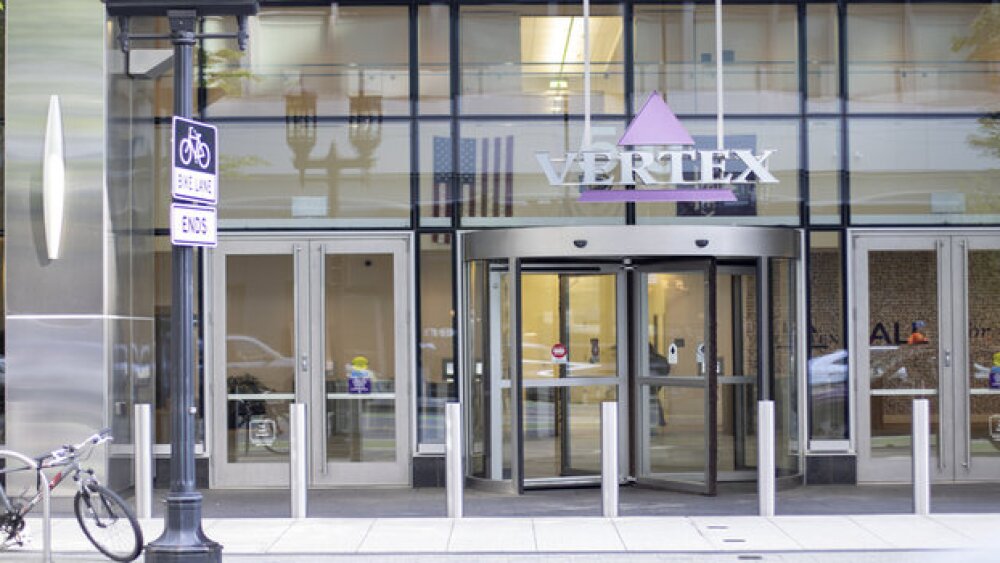The U.K. National Institute for Health and Care Excellence on Thursday recommended against funding Vertex Pharmaceuticals’ CRISPR-based sickle cell disease therapy Casgevy unless uncertainties can be cleared up.
Pictured: Vertex’s office in Boston, Massachusetts/iStock, hapabapa
A U.K. watchdog balked at the cost-effectiveness of Vertex Pharmaceuticals’ CRISPR-based sickle cell disease therapy Thursday, recommending against funding the treatment unless uncertainties can be cleared up satisfactorily.
The U.K. became the first country to authorize Vertex’s Casgevy (exagamglogene autotemcel) when the Medicines and Healthcare products Regulatory Agency approved the treatment in November 2023. However, regulatory approval is just the first of two key steps to reaching patients in the U.K. Vertex must also show the therapy is cost-effective before it can be used routinely by the National Health Service (NHS).
The U.K. National Institute for Health and Care Excellence (NICE) recommended against the use of Casgevy in sickle cell disease in draft guidance. The therapy has a list price of $2.2 million in the U.S. but NICE’s guidance says the U.K. price is “commercial in confidence.” Vertex’s justification for the cost rests on the potential for a one-time treatment with Casgevy to provide a functional cure for sickle cell disease.
Currently, NICE’s cost-effectiveness estimate for Casgevy exceeds the threshold it normally views as a good use of the NHS’ money. The watchdog factored in “a reasonable adjustment to account for health inequalities and the innovative nature of the technology” but still found the estimate tops the threshold for routine use.
NICE identified “several issues with the economic modeling” that are causing uncertainty. The watchdog has questions about estimates of survival and quality of life, the durability of the effect of Casgevy and the frequency of complications.
Vertex told NICE that 96.6% of people in its pivotal Phase II/III trial had a functional cure but it lacks long-term follow-up data to confirm the durability of the effects. While Vertex contends “there is no known biological mechanism that could reverse the genetic edit,” clinical experts that spoke to NICE “still had some concerns about whether the treatment effect would wane.”
Managed access, a mechanism designed to accelerate the availability of promising treatments, offers a way for products that exceed the cost-effectiveness threshold to reach the U.K. market. Companies that use the pathway gather evidence during the managed access stage to address the uncertainties that are stopping NICE from recommending their products.
However, Vertex “has not proposed to collect data to fully address” the uncertainties through managed access, NICE said, and the “evidence suggests that exa-cel is not likely to be cost-effective.” Those factors led NICE to recommend against use with managed access.
NICE’s process gives Vertex a chance to overturn the draft decision. The watchdog is accepting feedback on the draft until April 11 to inform the second meeting of its evaluation committee in May.
Nick Paul Taylor is a freelance pharmaceutical and biotech writer based in London. He can be reached on LinkedIn.






